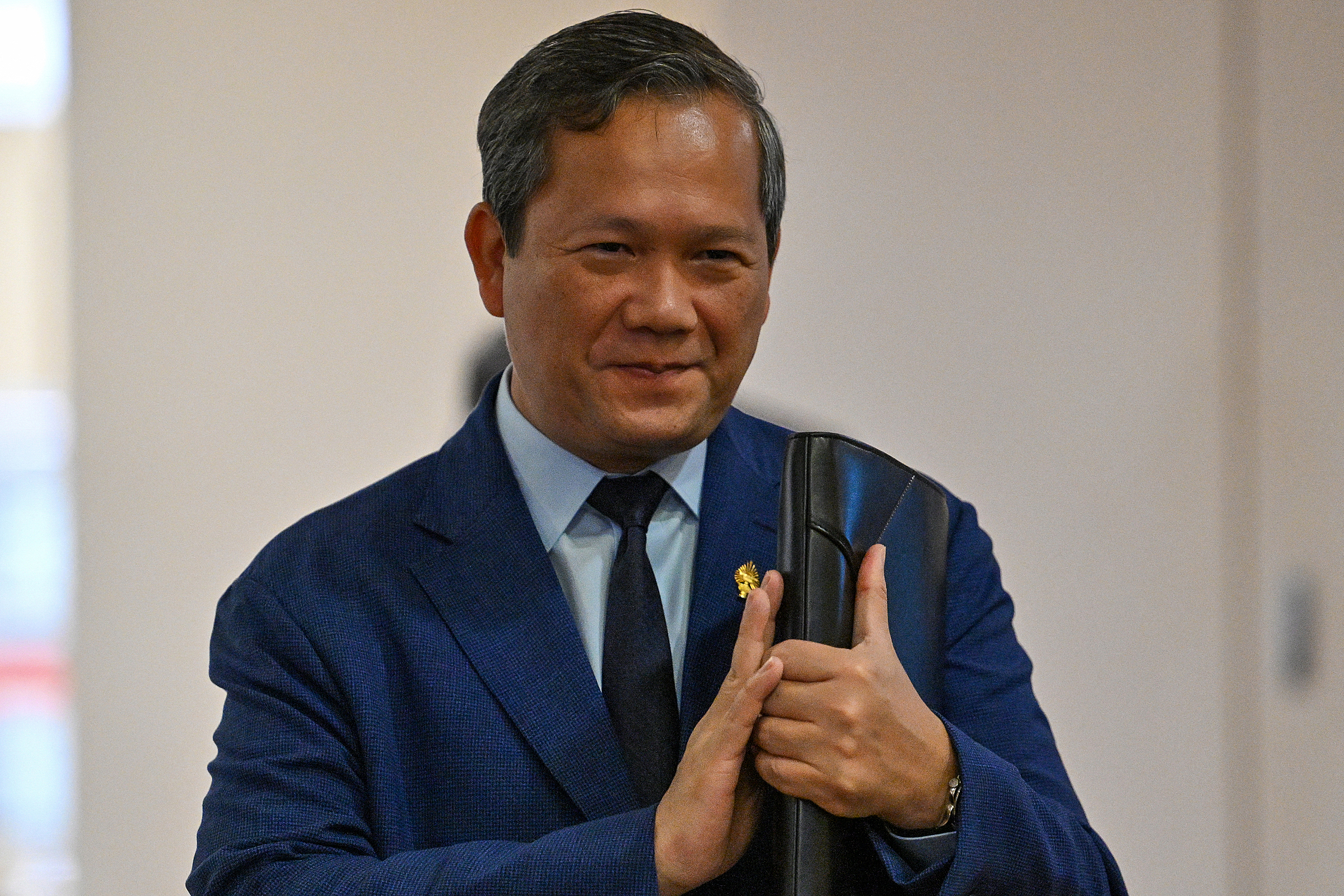All 120 members of parliament present at the August 25th session, including Prime Minister Hun Manet, voted in favor of the bill. While the bill still needs approval from the Senate and the head of state, these steps are largely procedural.
 |
Cambodian Prime Minister Hun Manet attends the National Assembly session on 25/8. Photo: AFP |
Cambodian Prime Minister Hun Manet attends the National Assembly session on 25/8. Photo: AFP
The Cambodian constitution previously stated that "no Khmer citizen shall be deprived of their citizenship, exiled, or extradited to another country unless there is a bilateral agreement."
In June, Senate President Hun Sen called for a constitutional amendment to allow for the revocation of citizenship from Cambodians who "support foreign countries that harm the nation." This followed criticism of the government by exiled opposition politicians regarding a border dispute with Thailand.
In July, all 125 members of the National Assembly voted to amend the constitution to state that "the granting, loss, and deprivation of Cambodian citizenship shall be determined by law." Justice Minister Koeut Rith said the amendment paved the way for legislation allowing the government to revoke the citizenship of anyone colluding with foreign forces against the state.
"If you betray the motherland, the motherland will not keep you," Koeut Rith said.
While human rights activists have expressed concerns that such a law could be used to target opposition politicians, Koeut Rith dismissed these concerns. "If they do not commit treason or engage in activities that harm national interests, they will not be stripped of their citizenship, but they may face other charges," he said.
Huyen Le (AFP)












